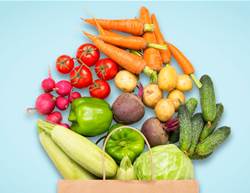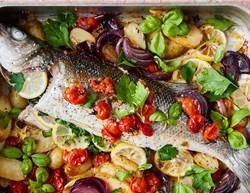Many of us second-guess our food choices, confused by the conflicting information about what is actually healthy. So you might have rid your pantry – and your plate – of some tasty staples. But the reality is they’ve been falsely demonised. The science is in, and you can go ahead and put these foods back on your shopping list.
Pasta
Contrary to what many people believe, pasta itself isn’t fattening – more often it’s the company it keeps (think creamy, cheesy sauces). “Pasta is actually low GI, so its energy is slowly released, keeping you feeling full and satisfied” explains Melissa Meier, a Sydney-based Accredited Practising Dietitian. The key with pasta is to eat it in the right proportions – instead of diving into a large bowl, keep the pasta component to a quarter of your meal, leaving room for some lean protein and bulk the rest up with vegetables.
Cheese
Although it can be high in sodium and saturated fat, cheese also has bone-strengthening calcium as well as protein. The key is to eat this dairy product in mindful portions, which in terms of cheese means two slices of hard types of cheese or half a cup of a soft cheese, such as ricotta.
Eggs
Eggs were once thought to be bad for your heart due to their cholesterol content, but after decades of exhaustive study, it is now known that the cholesterol in food doesn’t have a large effect on the level of cholesterol in our blood. The Heart Foundation now recommends that six to seven eggs a week is perfectly healthy as part of a balanced diet. So, get cracking! Eggs are a valuable source of protein – so they help you feel full.
White Potatoes
Sure, potatoes contain carbs, but because they’re a totally natural food – far different from the refined carbs in white bread, cakes or even potato crisps – eating them still counts towards our five serves of vegies a day with half a potato being one serve. As part of a balanced diet, white potatoes are perfectly acceptable, says Meier. You can even get low GI potatoes these days – so you’ll stay full for longer and avoid a large spike in blood sugar.
Peanut Butter
It’s often viewed as a fatty spread, but peanut butter can actually benefit your health because most of its fat is the heart-friendly, unsaturated kind. Meier says for the healthiest choice, check the ingredients list and choose a variety made with only peanuts, without salt, sugar or added fat.









